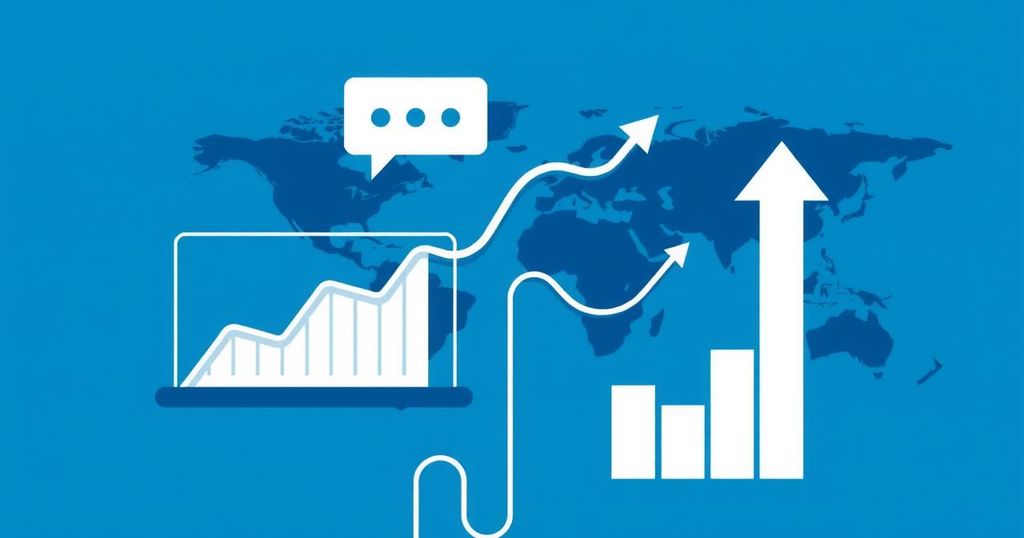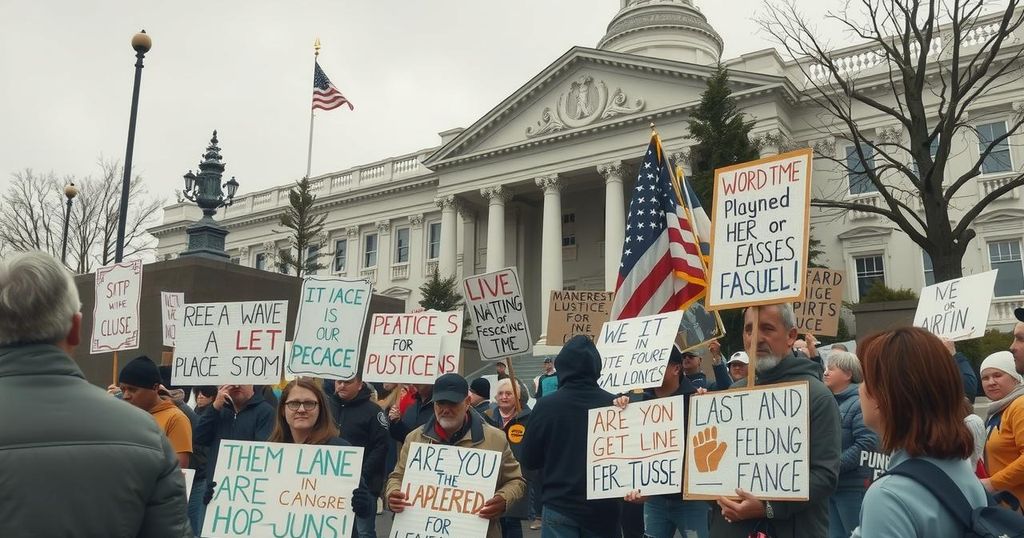Rwanda-backed M23 rebels have seized Goma, causing mass panic among its residents. The Congolese army, overwhelmed by the offensive, faces significant losses, leading to military surrenders. The UN has condemned Rwanda’s involvement, prompting urgent diplomatic discussions amid an escalating humanitarian crisis.
The city of Goma, located in eastern Democratic Republic of Congo, has reportedly fallen to rebels backed by Rwanda. Following a two-day ultimatum given by the M23 rebel group for the Congolese army to surrender, mass panic erupted among the city’s two million residents. In a statement, rebel leaders urged the population to remain calm, while the Congolese government characterized the situation as a “declaration of war” amidst ongoing military turmoil.
M23 forces, alongside approximately 3,000 to 4,000 troops from Rwanda, have besieged Goma for an extended period. Their advances threaten to exacerbate one of Africa’s longstanding conflicts and to further displace local populations. Reports indicate that Congolese armed forces are struggling to respond effectively, with some units resorting to surrendering weapons to UN peacekeepers present in Goma.
Explosions and gunfire were reported in Goma as chaos ensued, including a mass breakout from a local prison. The leader of the M23, Corneille Nangaa, confirmed their control over Goma and claimed the Congolese forces were disarming. The Congolese government, through spokesman Patrick Muyaya, called for civilian protection while acknowledging the rapid changes in the conflict conditions.
In response to the crisis, the UN Security Council convened urgent discussions condemning Rwanda’s involvement. Rwanda, in turn, dismissed these accusations, criticizing the Congolese government for undermining negotiations and supporting Hutu militia groups. In light of the escalating violence, the UN began the evacuation of personnel and their families to Rwanda, and borders near Goma were reported closed as international governments urged their citizens to leave the area.
The eastern Democratic Republic of Congo is characterized by a complex landscape of rebel factions that emerged from regional conflicts rooted in the aftermath of the 1994 Rwandan genocide. M23, which has a history of conflict over Goma, previously seized the city in 2012 but withdrew after diplomatic intervention. Congo hosts over one hundred armed groups, predominantly concentrated in the eastern region, with significant mineral wealth drawing international interests.
Since its previous engagement, the M23 has launched renewed offensives, capturing significant territories in North Kivu province and controlling key mining resources. The group claims to defend the Tutsi minority against Congolese government forces and Hutu militias, while allegations persist regarding Rwanda’s military support. The ongoing turmoil has resulted in nearly three million people being displaced in eastern Congo, exacerbating the humanitarian crisis.
The ongoing conflict in the Democratic Republic of Congo (DRC) is rooted in ethnic tensions and historical grievances traced back to the 1994 Rwandan genocide. M23, an armed faction that emerged shortly after this period, has been involved in repeated clashes, primarily in the mineral-rich eastern regions of the DRC. The complex interplay of local and regional politics, particularly the involvement of Rwanda, continues to fuel instability in the area, leading to significant humanitarian and security challenges.
The situation in Goma represents a critical juncture in the ongoing conflict in the Democratic Republic of Congo. With M23 rebels capturing the city, the risk of further escalation and displacement poses severe challenges for the local population. International responses continue to evolve as diplomatic efforts to address Rwanda’s support for the rebels remain contentious, and humanitarian needs grow increasingly urgent.
Original Source: www.ndtv.com




